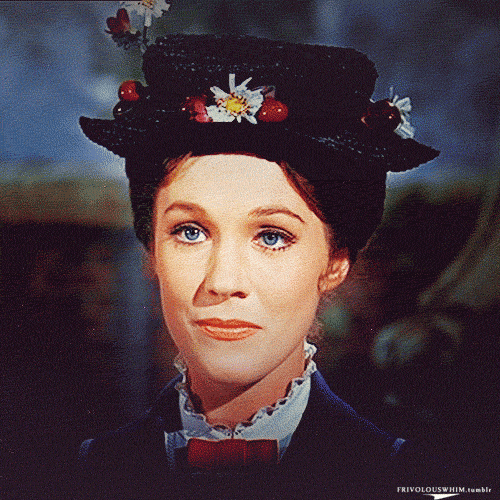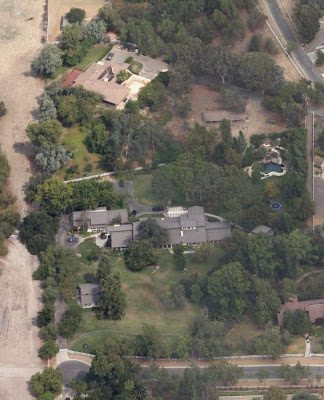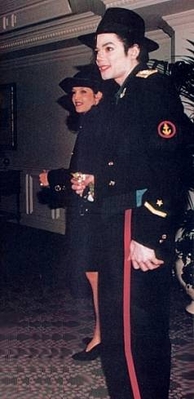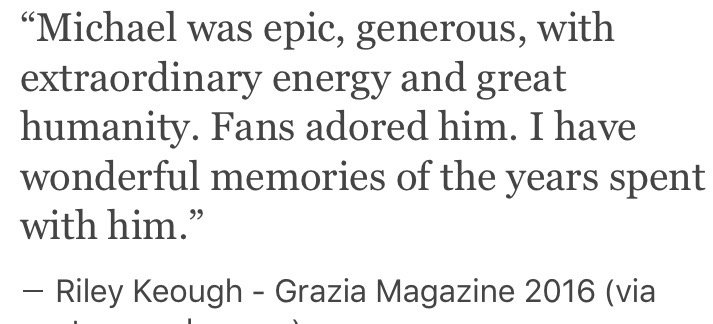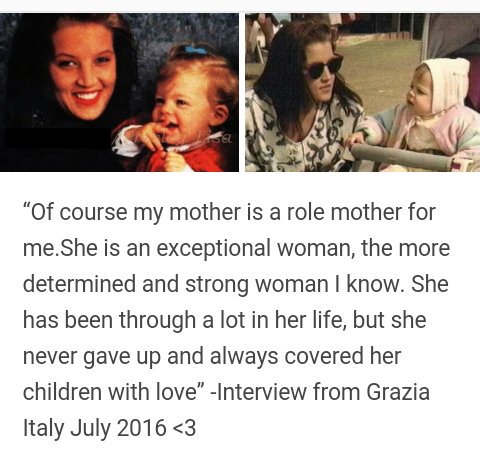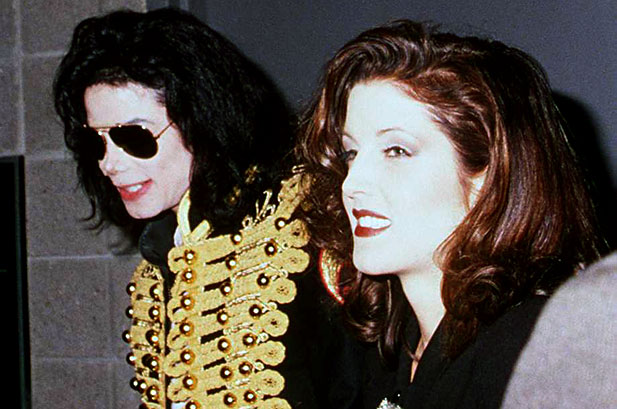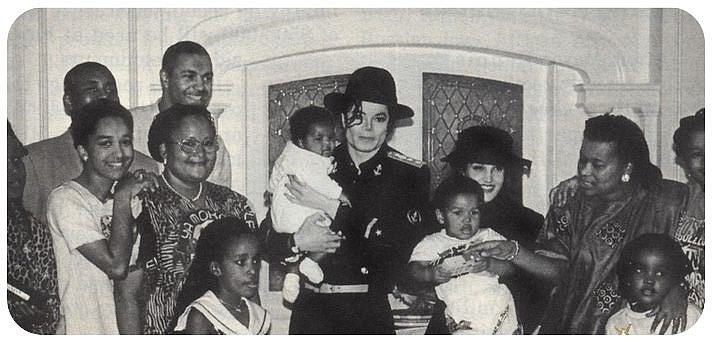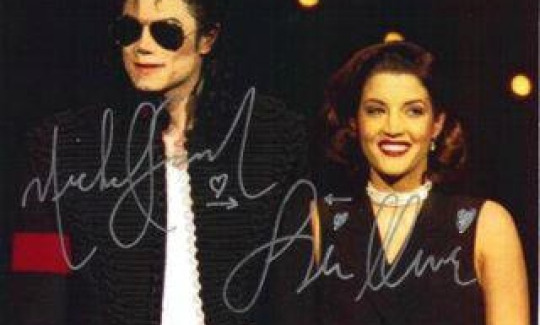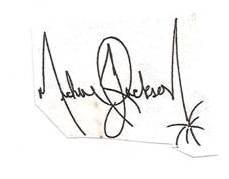Interview with The Times (October 2012)
Lisa Marie Presley on life with her father, marriage to Michael Jackson and why she’s moved to Sussex
The day before Lisa Marie Presley and I are to meet, the National Enquirer reports Presley’s fourth marriage is on the rocks and her singing career in freefall after poor album sales and poorly attended concerts.
But in a Los Angeles photography studio, the 44-year-old daughter of Elvis Presley – dressed in diaphanous blue shirt, her Sixties-styled hair and smoky eyes recalling her mother, Priscilla, when younger – seems far from a wreck. The custodian of Graceland, and heir to her father’s estimated $150 million fortune, Presley lives partly in Los Angeles and partly, surreally, outside the Sussex village of Rotherfield, where she reportedly considered joining the Kings Arms’ ladies’ darts team and has served fish and chips from their mobile van.
Between pictures, Presley kisses her husband, Michael Lockwood, father of her three-year-old twin daughters Harper and Finley, tenderly. She initially sits at an angle to me, looking at the door, but later relaxes. Two of her team say they will be “right outside if…”, but Presley is ballsy, intelligent and candid (not “a victim”, she insists), if wary of everyone: “I’m always on my guard.”
Three years ago, Presley deconstructed her “life and regime I had around me – confidants, friends, hangers-on – when I realised no one was as I thought. There were quite a few betrayals, it was the magnitude of how many... and I didn’t see it. I was in a labyrinth of complete manipulation and didn’t know it. Uncovering it was really shocking. People who I thought were well-intended were not. I got rid of absolutely everybody from my life, besides my husband, children, mother and family.”
She sighs. “Then I began to write: I process pain through music. People don’t understand fame. I’m not whining or saying, ‘Woe is me,’ but you have to question the intentions of the people closest to you. Friends you’ve had your whole life can turn out to be really wrong. I thought I had a good BS detector, but no. Seeing the truth set me free; a lot of the anger has gone.” Explaining Storm & Grace, the title of her third album, she says, “As you get older you get more graceful. You hope to, anyway.”
Was she being cheated of money? “No, it was a sinister scene about control and power, manipulating me into doing things or not doing things. Going to England and writing songs was my therapy.” She lived in Richmond, southwest London, for eight months, then found a home “in the middle of nowhere; my only preference was it had to be an hour by train from London. We moved there knowing no one. I needed to be around normalcy, which I have found the English countryside gives me. Being around normal, good people – I’m talking about English villagers – made a huge difference.”
So is she joining a darts team? “I go to a few pubs and don’t play darts.” What of the rumoured failing career? “The National Enquirer is obsessively trying to make me fail whatever I’m doing. If I sold everything [in terms of albums], they’d say I was failing.”
US critics have praised the new album: Rolling Stone said, “Storm & Grace is the album she was born to make – a raw, powerful, country, folk and blues collection that finds her embracing her Southern roots and family name.” She is happier with the “bluesy, organic, Americana feel of this record” than the previous two, she says. “This is not an instant gratification genre. It takes a lot more work to win an audience over.” What about her allegedly crumbling marriage? “There is absolutely no truth whatsoever to the story my marriage is failing. I will be with him till one of us is dead.”
England has provided much-needed sanctuary. “For the children it’s vastly different. In the US you’re saturated with celebrity. It’s more civilised in England. It resembles something from the Fifties, the children in their school uniforms. I love that I know lots of people in my village. Jeff Beck lives near us and we hang out with him and his wife.” Aren’t villagers agog when Lisa Marie Presley pops into the butcher’s? “Either they’re not going to pay any attention because they know who you are, or they’re just going to be polite. There are ways to keep clear of fame. I wasn’t raised to call the paparazzi when I went to Starbucks; now it’s, ‘Do all you can to get into the tabloids.’ You don’t have to be terrorised by it.”
Presley has been her father’s custodian since she was a girl. “I’ve been sitting in meetings from 15. I’ve learnt to think business-wise, not too emotionally, how to keep things authentic, to protect his image.” It was “a really confusing childhood”. Her parents separated when she was 5, after her mother had a relationship with her karate instructor. Lisa Marie spent half her time at Graceland with her father and the rest with her mother in Beverly Hills. “There were no limitations whatsoever at Graceland. I could stay up all night, sleep all day, never take a bath, be an absolute terror and tomboy. When I went to my mother’s I was on a strict schedule.” Her parents’ separation wasn’t traumatic: “They were always very friendly with each other. They made decisions together.”
“I used music as my escape,” she says. “I would listen to my 45s: my father, Sweet Inspirations, Neil Diamond, Elton John. My father sang a lot of gospel around the house. I was very influenced by that.” Was the “Elvis” on stage an act? “There was nothing about that persona that was put on,” Presley says adamantly. “He’d just as much blow your mind when he walked into a room as on stage. His presence truly was awesome to witness.” Her father would make her sing or play the piano in front of people. “If he was away, he would listen on the phone after a piano lesson to hear what I had learnt.” Her favourite memory: “Upstairs in Graceland are two rooms, his and mine [off limits to the public today]. He set up a chair, table and TV in my room; he was always sitting in there. I loved it. In the middle of the night, I would wake up and he would be sitting watching TV because he wanted to be close to me. I loved that. It was always nice to turn over and have a chat with him.”
How aware was she of his prescription drug dependency? “He was an incredible father. I felt very loved, very protected. He had things that made him unhappy and the people around him who weren’t good were a big part of that. He could be frustrated. I wasn’t aware of the drugs until towards the very end. He would appear slightly disconnected. I noticed he needed to take something. Tablets. All prescription, nothing was street. He didn’t drink or smoke cigarettes. It was all pharmaceutical stuff.”
Did she inherit his addictive personality? “I am the kind of person who, when I love something, I love it, all or nothing. But I wouldn’t want to ever be caught or owned by something.” As a teenager, “I tried drugs. I was never addicted to anything. When I was 14, 15 I tried everything, then just got bored with it. I wanted greater purpose in life and got done with it pretty quickly.” She still drinks. “I can drink with the best of them in pubs in London, though the English can out-drink me by a long shot.” She likes champagne and Guinness. “I can’t keep up with my English friends. They’re still going the next day. I’d need an ambulance.”
Of Elvis’s death in 1977, when she was 9, from an apparent heart attack, she says, “Of course it was devastating. I don’t know how else to describe something like that.” Was her loss complicated by his fame? “I think that was probably the most confusing thing for me, because it delayed my grieving process. I had to watch everyone else falling down and crying and ambulances coming. I was really confused because I was there, experiencing my emotions, but it was worldwide. I was watching the news, watching people outside the gates pass out and have to be taken away. I was stunned by what was going on around me.” His body reportedly contained a total of 14 drugs, including 10 times the normal dosage of codeine and toxic levels of methaqualone (quaaludes). “It’s still confusing for me,” Presley says. “People were trying to shield me and pull me away, but unsuccessfully.”
She feels “very close” to her father at Graceland. “I always want to have it; it will always be mine and my family’s. It’s my legacy and it’s important to me how it is perceived and handled.” She goes three or four times a year, has family dinners when the tourists have long departed, “ride the golf carts around. It’s like a time capsule. There’s a lot of interesting energy in that house, the life that was once there: it haunts the walls and hallways. You can feel it.”
As she grew older she was “a treacherous, terrible teen. I was really confused, really rebellious.” Why treacherous? “I feel because I lost my father, who I was closest to, too early. My mum and I weren’t very close when I was younger. She was young growing up with me; it was hard, she was still trying to find her way. I never liked anyone she dated. She didn’t know what to do with me and her solution was to send me off a lot: boarding schools, Switzerland. I got the wrong message from that.” How are she and Priscilla – famous for playing Jenna Wade in Dallas – now? “We made friends in my thirties and now we’re very, very close. Certain elements in our lives have kept us from getting close before, people we were seeing or dating.” Priscilla is appearing as the Wicked Queen in an English pantomime production of Snow White, “which the twins are really looking forward to”.
Presley “was always intimidated” by pursuing a career in music, “because it’s very daunting, the whole ‘daughter of Elvis’ thing”. She felt she would be judged? “I am constantly,” she says sharply. “People think it’s easier for me, but it’s a lot more difficult and there’s a lot more pressure because they’re expecting something out of you that you may or may not have.” In a “different time or place”, she feels, “when Carole King or Linda Ronstadt were doing their songs in the Seventies, I could have been a lot more successful on my own. But that whole ‘You’re not your father’ thing comes in and I can’t win. People are either really gunning for you or pulling for you. It’s really extreme.”
She says she “didn’t want to be controversial, but certain things have been by default or connection”. Does she mean her marriages? “They were just different phases of my life, but they were highly public.” Her first marriage, which lasted from 1988-94, was to Scientologist musician Danny Keough, and they married in a Scientology church in LA. Why did it fail? “We were oil and water and it was never meant to be.” Did she think it was for ever? “I did and we had children [Riley, 23, and Benjamin, 20], which is always painful. But I was really young. I wanted to have children young. I felt like I needed to be responsible; they gave me purpose. I’m very maternal and like nurturing.”
Why did Presley marry Jackson in 1994? “Because I fell in love with him,” Presley says briskly. A lot of people found the union odd.
“I don’t know why, because we were actually similar in a lot of ways. We didn’t have conventional lives. It made sense to me.” He was loveable? “Very.” Was she acting out some desire to “save” Jackson in a way she couldn’t her father? “I’m sure there were things about Michael that reminded me of my dad. I don’t think it’s unfair to say I’m still a sucker for a father figure. I think I always have been. There were probably things they shared that intrigued me. Both were incredibly dynamic and iconic. My father set the precedent for me early. There were some big shoes to fill.”
Was Jackson gay? “Absolutely not, not in any way shape or form. Not, not, not, not.” She was with him when the first child molestation charges were made. “I always maintain it’s not anything I was around for and nothing I witnessed.” Did she want to have children with him? “In the beginning, yes.” They divorced after two years in 1996. “I hoped it would be the one that would last, but that was a messy situation. Too many people got involved between us.” She means entourages. “We both allowed that, which was a mistake.” Jackson’s death in 2009 “was really confusing and really, really painful. Our relationship was something I had parked away, pushed away. It brought it all back in a way I was not prepared for, things I hadn’t dealt with. Some of the things that we went through could never be fixed or resolved. It was devastating.”
They last spoke in 2005. She spent time alone with his body after the private funeral: “Not an easy thing.” Now she has found “some peace, it can quiet but never go away”. She remains close with matriarch Katherine, presently in reported dispute with her son’s children. “They’re really sweet, incredible people,” Presley says of the Jacksons. “I’ve always had a relationship with them. All I can do is wish them the best.”
She and third husband Nicolas Cage divorced after four months after marrying in 2002, with Presley saying they should “never” have married. “We’re still friendly, stuff happens, things happen, life happens. He’s happy, I’m happy. We’re still friends.” She and Lockwood, who she met while married to Cage, will stay together for ever, “without a doubt. Having gone through so many things you just want a partner who complements you, and is really confident with himself.” Lockwood “doesn’t get intimidated because of my situation”, says Presley. “He’s worked with really strong females such as Carly Simon. We’re partners and best friends. Everything flows really well. Maybe twice in nine years we’ve had a slight tiff. We haven’t spent a night apart: that’s also saying something.”
Having twins, “it’s double everything”, says Presley. “Double happiness, double concern, double fits, double tempers. They’re really strong-willed. Parenting softens you. You see how innocently we start out, then become the product of everything around us. It’s a fine line between not wanting them to get hurt, yet letting them experience things.” Her eldest daughter, Riley, is becoming a well-known actress; Ben wants to be a musician. Of the twins, Finley will become a singer and Harper an actress, she predicts. They are in a school “not with a bunch of celebrity children as I was for a while. I didn’t do so great in that situation. I did better away from the limelight and came into it when I was ready. I want the little ones to make a conscious decision and for things to be as normal as possible until then.” Does she want more children? “I go back and forth. Right now I don’t think they’d love our attention to be on anything else, even a cat.”
One new song, So Long, features the lyrics: “Churches, they don’t have a soul… Religion so corrupt and running lives/ Farewell, fair weathered friends/ I can’t say I’ll miss you in the end.” Is this a repudiation of Scientology? Has she left the Church? “I write literally and metaphorically,” Presley says, guard cranking up. “People are taking things and going wherever they want with it. When I write a song it’s an open canvas.” I ask again if this song is a rejection of Scientology. “I don’t discuss religion in any capacity,” she says. Is religion important to her? “Belief in something is always very important.” Was Scientology helpful? “I am not discussing religion.” Is faith important to her? “Absolutely. Belief is important.” Does she believe in God? “Again, that question is religious in nature.” Does she believe in something “bigger”? “Yes. I believe it’s important people believe in what they want to believe in to make their lives better.”
